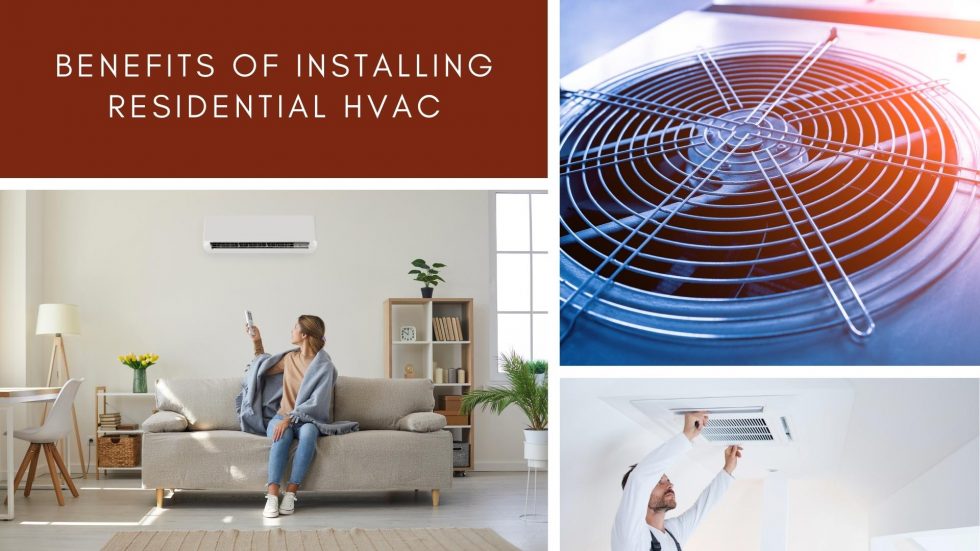
The furnace capacitor is one of the most important components in your HVAC system. Yet, most homeowners hardly ever think about it. A malfunctioning or failing capacitor can lead to various problems in your heating and cooling systems. That can cause your furnace to run longer than it needs to or even fail to turn on at all. Did you know that many HVAC systems use more than one capacitor? So, it is crucial to understand how to identify a failing capacitor and when you should replace it.
What Is a Furnace Capacitor?
A furnace capacitor is a tiny energy-storage device that helps regulate voltage in a furnace. These devices enable motors to run quickly and efficiently. Capacitors store electrical energy when the power level of the electric current is not high enough. Then it releases the electric current when necessary to keep a motor working at peak performance.

Furnaces have at least two capacitors. First is the start capacitor, designed to give the component enough power when you turn it on. The second one is the run capacitor, which regulates the voltage while operating throughout the rest of the day. The types of capacitors will differ between manufacturers. Therefore, consult a professional HVAC technician or manufacturer to identify and replace the faulty capacitor.
What Are the Common Signs of a Faulty Furnace Capacitor?
The signs of a failed furnace capacitor can be difficult to identify. However, several indirect signs indicate the furnace capacitor has failed, and it may be time for you to replace it.
The noise from your blower motor is louder than usual.
Do you hear any humming? A bad capacitor could cause your blower motor to make a noise when you turn it on. So if you hear a new and louder sound from the blower motor, it is not a good sign. This symptom is the most common sign of a failing capacitor. Usually, it can manifest as an audible hum or whirring sound, much like the fan’s “ramp-up” sound when you turn on the system.
The blower motor does not start at all.
Do you see the fan spinning? The blower motor goes into action when you turn your HVAC system on. The capacitor supplies the initial surge of electricity needed to spin the blower. If you have a faulty furnace capacitor, the blower motor will not get a charge. Without this initial charge, the blower cannot start.
What Causes a Furnace Capacitor to Fail?
A furnace capacitor usually fails for one of two reasons:
Old and expired capacitor
Furnace capacitors have a lifespan and lose their energy capacity over time. Normally, the average capacitor lasts 10-15 years. However, in some cases, the capacitor can wear out earlier or after its allotted time. And when a furnace capacitor reaches the end of its lifespan, it will stop working.
Strained blower motor
Sometimes, the problem is not your capacitor but one of its underlying causes. For example, a constricted blower motor may make your capacitor work harder to compensate for the strain.
Is It Safe for You to Replace a Furnace Capacitor Yourself?
Replacing the furnace capacitor yourself can be quite tempting to save some bucks. However, we strongly recommend you rely on professionals with the experience and tools to ensure your safety. A working knowledge of electricity and the ability to safely use tools are key factors in performing successful capacitor replacement.

Furthermore, an incorrectly installed capacitor could damage and result in expensive repairs to your HVAC system. A DIY replacement could cost you hundreds or even thousands of dollars due to furnace failure. Additionally, furnace maintenance or installation that was not performed by a professional can void your HVAC system’s warranty.
Furnace Repair Near Me
Is the blower motor noisier than usual? Or is the blower motor on your furnace not running at all? At Pioneers Heating and Air, our experienced professionals are ready to assist with your heating and cooling needs. We provide a wide range of services to homes and small businesses, including furnace repair, air conditioning installation, capacitor replacement, and more. In addition, we are BBB-rated, so you can be sure you are getting the best possible service. For HVAC service and other urgent needs, call us at (626) 217-0559!







